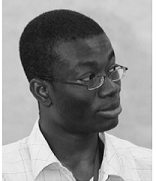
|
|
Keynote Speeches
The Future of Serious Games and Immersive Technologies

|
David Wortley FRSA |
Abstract
Since the term “Serious Games” was coined around the use of the video game “Americas Army” less than a decade ago, there has been a tremendous shift in the awareness and acceptance of video games as tools for serious applications that address a range of organisational and societal issues. Many of the technological innovations that have driven this exponential increase in the number and diversity of serious games applications have come from the entertainment games industry.
In the future, we are likely to see the convergence of video games, virtual worlds and social networks accessed through mobile devices and high speed wireless networks and using a vast array of sensor technologies to connect real world information to augmented virtual worlds in which more sophisticated artificial intelligence is used to personalise the user experience and embed games and social media into everyday life.
Curriculum Vitae
David Wortley is a freelance consultant on the strategic use of immersive and emerging technologies such as serious games, virtual worlds and social networks. His mission is to help organisations and individuals, leverage the power of these technologies for competitive advantage and business/personal development. He has recently acted as an adviser on Serious Games and Augmented Reality for the EU Vision 2020 strategic document prepared by the ICT Directorate
David is a Fellow of the Royal Society of Arts (FRSA) with a career which has embraced the converging and emerging technologies of telecommunications (Post Office Telecommunications), computing (IBM), digital media and community informatics (Mass Mitec, a rural SME) and the creative industries (De Montfort University Leicester, UK). He is a serial entrepreneur and innovator with a passion for applying technology to social and economic development
Most recently, David was Founding Director of the Serious Games Institute (SGI) www.seriousgamesinstitute.co.uk at Coventry University and was responsible for the development of the Institute as a global thought leader in the application of immersive technologies (which include video games; virtual worlds and social networking) to serious social and economic issues such as education; simulation; health; commerce and climate change. Working with academics; regional development agencies and leading computer games companies, David made the SGI a focal point for games based learning, simulation and immersive 3D virtual environments and an engine for innovation and social and economic regeneration.
David is a respected and sought-after international conference speaker and writer for global publications on Learning Technologies, Defence and Health applications. He has written numerous papers on technology and society and is a regular conference presenter
His more extensive CV can be downloaded here. ![]()
Uncovering conversations on social media
Professor Shaun Lawson, School of Computer Science, University of Lincoln, Lincoln, United Kingdom
Multi-Core to Many-Core: Intel's blunder and Gamer's nightmare
 |
Kofi Appiah |
Abstract
Why multi-core? It all comes down to physics. For many years, chip vendors have translated Moore’s Law of transistor count into direct doubling of processor’s clock frequency and power consumption every 18 months. Power consumption is directly proportional to frequency. Higher-frequency operation also requires running at higher voltage levels, and power consumption is proportional to the square of the voltage. Thus, the thermal power of a processor increases as the frequency increases, and reducing this effect is a major consideration in nearly all microprocessor manufacturers. Intel’s introduction of Multi-core has been a direct result of inability to circumvent the law of physics – increasing CPU clock speed whiles reducing power dissipation.
This lecture will explore the transition from single to multi-core processors, multi-core to many-core processors and the direct impact on the speed and performance of applications. Applications or games designed solely to take advantage of increased clock speed rather than increased raw computer power or resources, may run slower in the new era. Challenges faced by computer programmer, games and developers in this era of multi-core processors, many-core processors, cluster computing, grid computing and more importantly parallel computing will also be addressed in this lecture.
Curriculum Vitae
Kofi Appiah received the B.Sc. degree in computer science from the Kwame Nkrumah University of Science and Technology, Kumasi, Ghana, the M.Sc. degree in electrical engineering from the Royal Institute of Technology, Stockholm, Sweden, and another M.Sc. degree in computer science from the University of Oxford, Oxford, U.K., and the Ph.D. degree from the University of Lincoln, Lincoln, U.K., in 2010.
He is currently a Senior Research Officer with the Computer Science and Electronic Engineering Department, University of Essex. His current research interests include computer vision, multi-core and many-core architectures, and highly parallel software and hardware co-designs.


 Tel: +44 (0)789 665 9695
Tel: +44 (0)789 665 9695 Email:
Email: 







